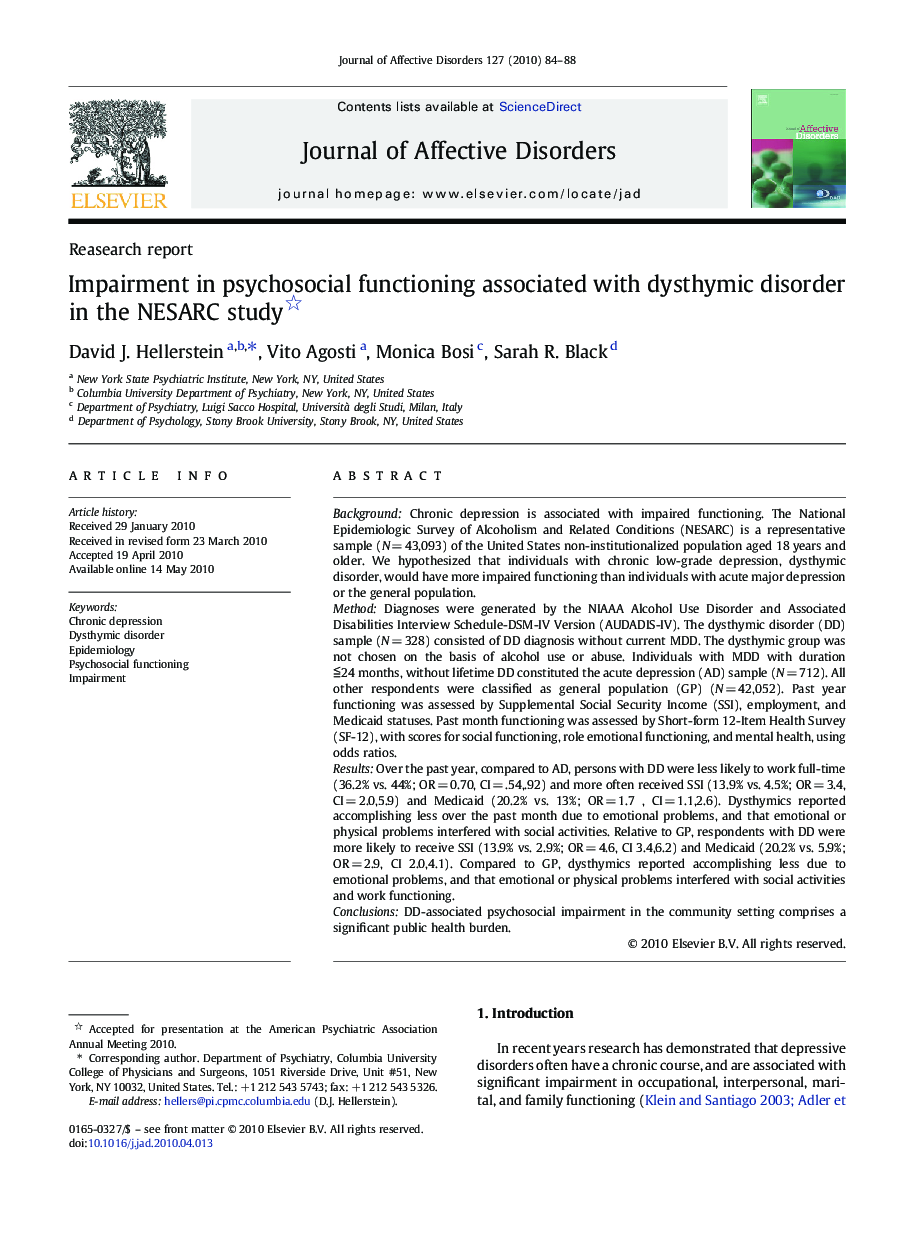| Article ID | Journal | Published Year | Pages | File Type |
|---|---|---|---|---|
| 4186626 | Journal of Affective Disorders | 2010 | 5 Pages |
BackgroundChronic depression is associated with impaired functioning. The National Epidemiologic Survey of Alcoholism and Related Conditions (NESARC) is a representative sample (N = 43,093) of the United States non-institutionalized population aged 18 years and older. We hypothesized that individuals with chronic low-grade depression, dysthymic disorder, would have more impaired functioning than individuals with acute major depression or the general population.MethodDiagnoses were generated by the NIAAA Alcohol Use Disorder and Associated Disabilities Interview Schedule-DSM-IV Version (AUDADIS-IV). The dysthymic disorder (DD) sample (N = 328) consisted of DD diagnosis without current MDD. The dysthymic group was not chosen on the basis of alcohol use or abuse. Individuals with MDD with duration ≦24 months, without lifetime DD constituted the acute depression (AD) sample (N = 712). All other respondents were classified as general population (GP) (N = 42,052). Past year functioning was assessed by Supplemental Social Security Income (SSI), employment, and Medicaid statuses. Past month functioning was assessed by Short-form 12-Item Health Survey (SF-12), with scores for social functioning, role emotional functioning, and mental health, using odds ratios.ResultsOver the past year, compared to AD, persons with DD were less likely to work full-time (36.2% vs. 44%; OR = 0.70, CI = .54,.92) and more often received SSI (13.9% vs. 4.5%; OR = 3.4, CI = 2.0,5.9) and Medicaid (20.2% vs. 13%; OR = 1.7 , CI = 1.1,2.6). Dysthymics reported accomplishing less over the past month due to emotional problems, and that emotional or physical problems interfered with social activities. Relative to GP, respondents with DD were more likely to receive SSI (13.9% vs. 2.9%; OR = 4.6, CI 3.4,6.2) and Medicaid (20.2% vs. 5.9%; OR = 2.9, CI 2.0,4.1). Compared to GP, dysthymics reported accomplishing less due to emotional problems, and that emotional or physical problems interfered with social activities and work functioning.ConclusionsDD-associated psychosocial impairment in the community setting comprises a significant public health burden.
